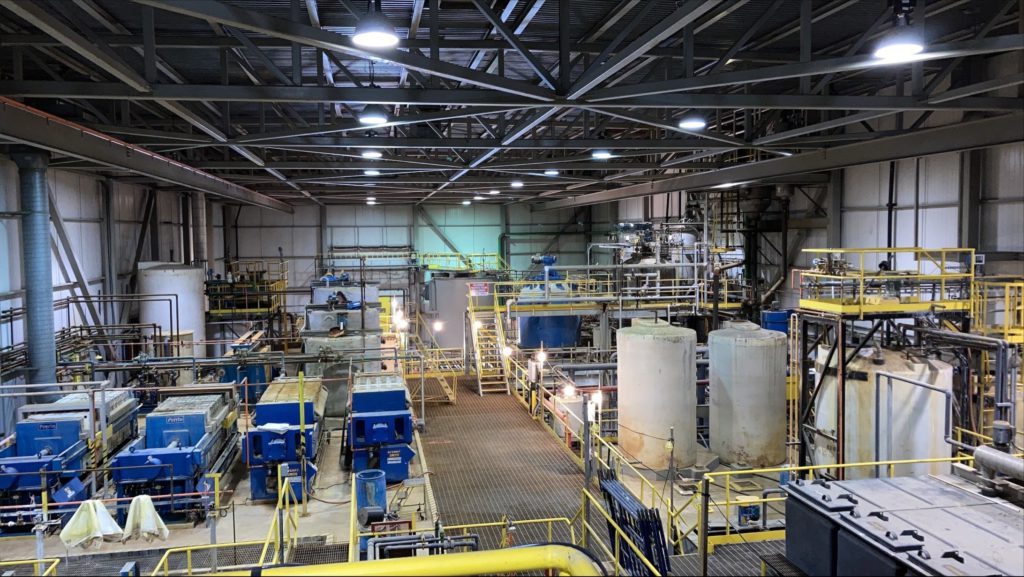Electra begins commissioning of battery materials recycling demonstration plant in Ontario


Electra Battery Materials (NASDAQ: ELBM; TSXV: ELBM) has begun commissioning of the black mass recycling demonstration plant at its battery materials park located north of Toronto following the successful installation of material feed handling and lime delivery systems, two key circuits in Electra's hydrometallurgical process designed to recycle end of life lithium-ion battery materials.
Electra is currently retrofitting its existing cobalt sulphate refinery located in Temiskaming Shores, Ontario, to accommodate its proprietary hydrometallurgical process designed to treat black mass, a byproduct generated from the recycling of end-of-life EV and other lithium-ion batteries.
Under the parameters of the black mass demonstration, Electra plans to process up to 75 tonnes of material in a batch mode. Using its lab tested process, Electra anticipates the recovery of high value elements found in lithium-ion batteries, including nickel, cobalt, lithium, manganese, copper, and graphite.
"Automakers are looking for a closed-loop supply chain for their batteries, and Electra's recycling process presents a compelling solution to move to a circular model for recycling end-of-life batteries and battery manufacturing scrap," Trent Mell, CEO of Electra, stated in a news release.
"Pending completion of the demonstration plant and a review of project economics, success could pave the way towards the buildout of a 5,000 tonne per annum black mass processing facility within our battery materials park in Ontario using existing infrastructure, personnel and lab facility. Additional capacity would be added through construction of additional modules as the market for recycled battery material expands," Mell added.
Electra also anticipates the full commissioning of all equipment and circuits of the black mass recycling demonstration in the fall of 2022. Full commissioning of the cobalt sulphate refinery is expected in the spring of 2023.
In preparation for the black mass demonstration plant, Electra completed process development and engineering on recycling black mass material. Electra previously sourced black mass samples from suppliers in North America, Europe and Asia; studied the feed characteristics; and developed a hydrometallurgical process route to recover contained lithium, nickel, cobalt, copper and graphite.
According to Electra, its proprietary hydrometallurgical process has a low carbon footprint and produces stable non-acid generating tailings, thereby reducing environmental impacts while meeting or exceeding water discharge effluent criteria as stipulated by both federal and provincial regulations.
The company previously completed a benchmarking study that indicates the carbon intensity of battery-grade nickel sulphate produced from recycled black mass using its hydrometallurgical process is lower than other feed options, including Class 1 nickel metal, nickel mixed hydroxide precipitate or ferronickel.
In addition, the carbon intensity of nickel sulphate produced from recycled black mass at Electra's refinery, which uses hydroelectricity as its primary energy source, is less than 50% of the carbon intensity of nickel sulphate produced from mixed hydroxide precipitate when the source of energy relies on non-renewables such as coal-powered electricity.
THIS ARTICLE WAS FIRST PUBLISHED ON MINING.COM
Comments